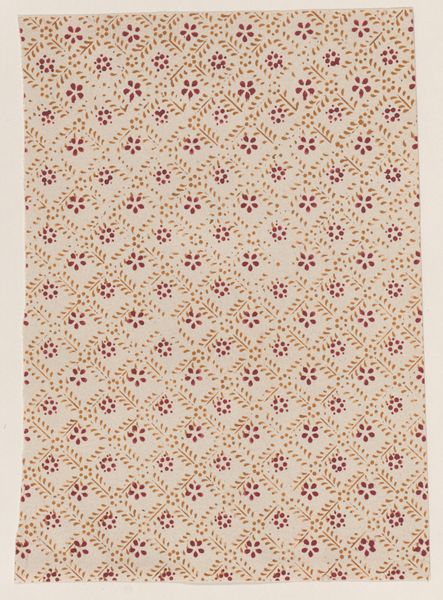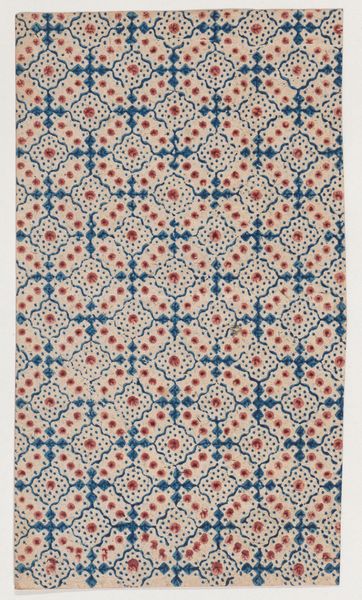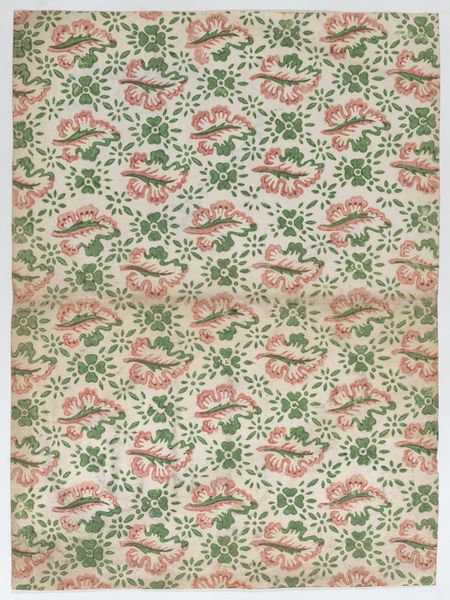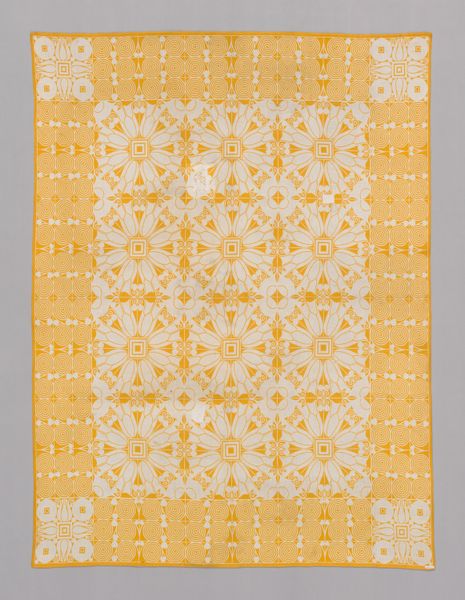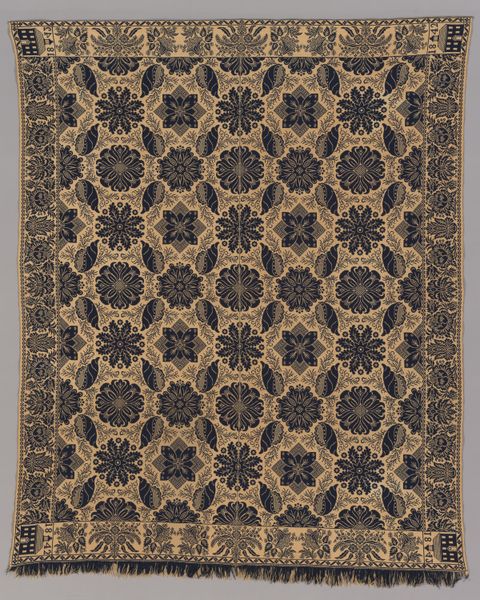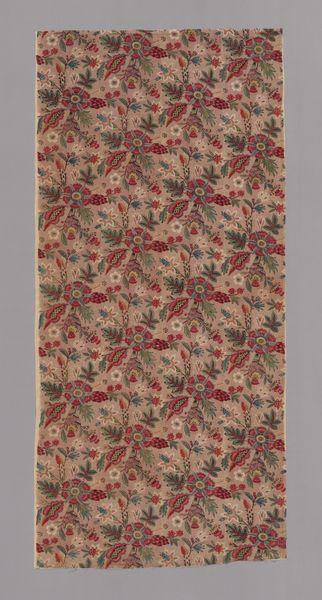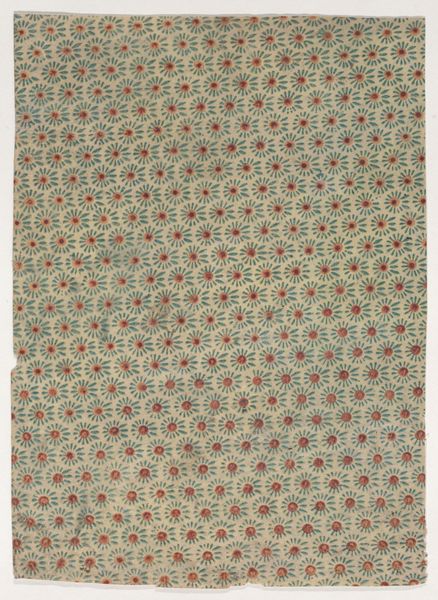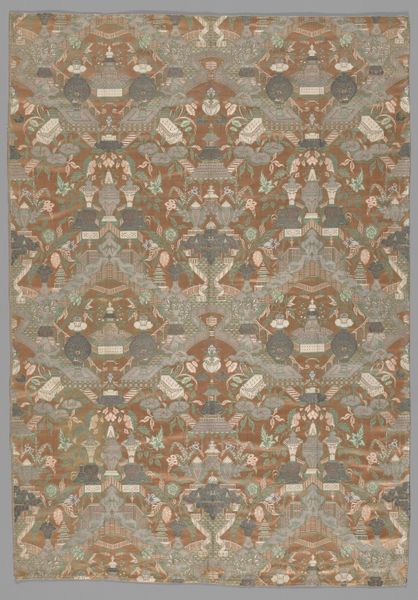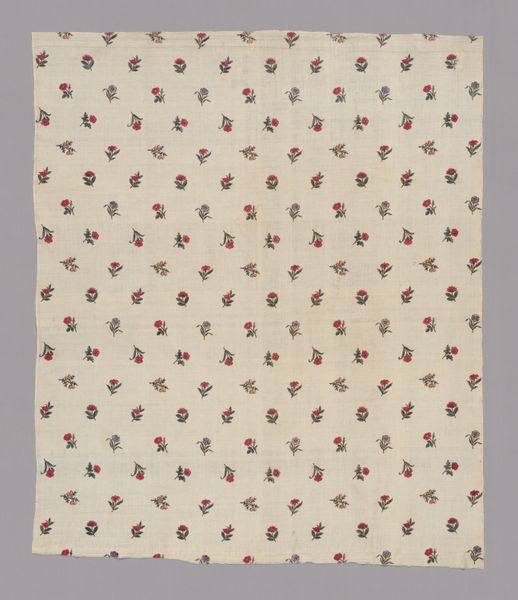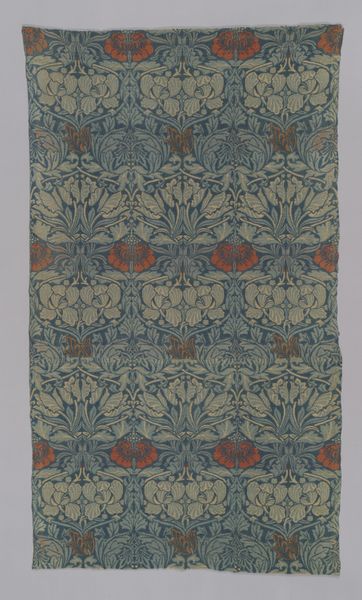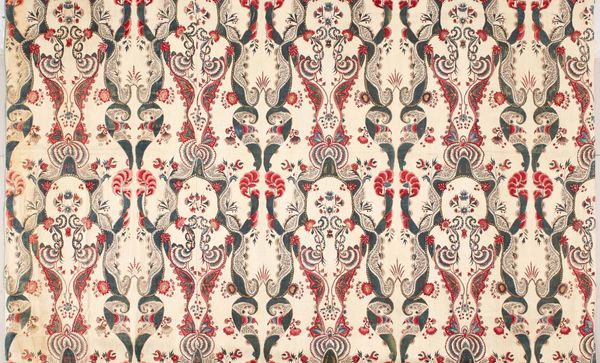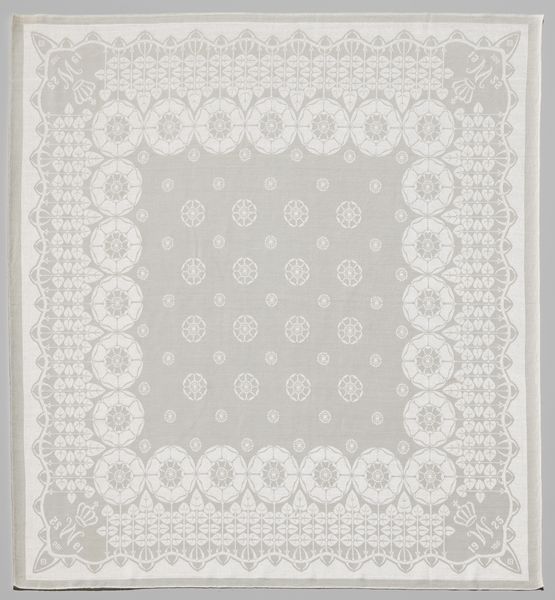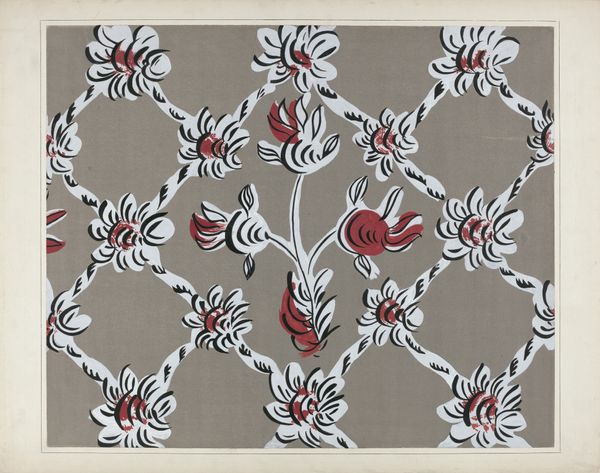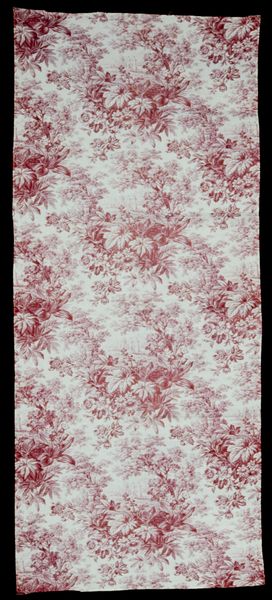
fibre-art, textile
#
pattern heavy
#
fibre-art
#
textile
#
pattern design
#
repetitive shape and pattern
#
geometric
#
repetition of pattern
#
regular pattern
#
pattern repetition
#
textile design
#
imprinted textile
#
layered pattern
#
combined pattern
Dimensions: 80 3/4 × 93 1/2 in. (205.1 × 237.5 cm)
Copyright: Public Domain
Martha A. Page created this quilt in 1852 using cotton, and the technique of piecing. The simple geometry of the design—red squares and circles on a white ground, ornamented with vines—belies the complexity of the work involved. Each of these shapes was individually cut and stitched together. The cultural significance of quilting lies in its traditional association with domestic labor, and with women’s work, as well as its functionality as a household textile, especially in times of scarcity. The name of this quilt, ‘Burgoyne Surrenders,’ may refer to the American victory at the Battle of Saratoga. It is named after the British General John Burgoyne, who surrendered his army to the American troops in 1777, in a major turning point of the Revolutionary War. Whether or not this is the case, the choice of name suggests a desire to commemorate the nation’s military and political history within the domestic sphere. Considering the material, making, and context helps us understand the full meaning of the artwork, challenging traditional distinctions between fine art and craft.
Comments
No comments
Be the first to comment and join the conversation on the ultimate creative platform.
